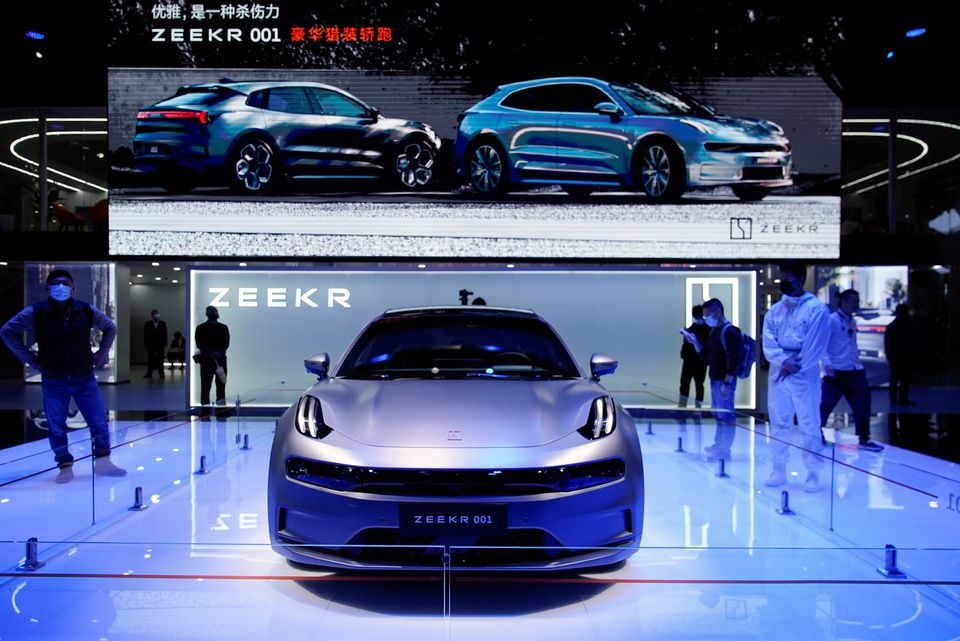SHANGHAI, Aug 18 (Reuters) – China’s Geely Automobile Holdings Ltd (0175.HK) aims to increase the proportion of electric vehicles (EVs) in its total sales to 50% in 2023, as it accelerates a transition to electric power amid weakening demand for petrol-driven cars.
Sales of pure electric and plug-in hybrids will already account for more than 30% of Geely’s monthly sales in the second half of this year, Chief Executive Jerry Gan told reporters in an online event on Thursday.
One out of five vehicles Geely sold in the first half were full electric or hybrid, sales of which increased nearly four fold, compared with a 20% slump in sales of vehicles with combustion engines, according to the company.
Hangzhou-based Geely, China’s highest-profile automaker globally due to the group’s investments in Volvo Cars and Mercedes-Benz, posted a 35% fall in first-half net profit.
The company said its vehicle sales, which fell 9% in the first half in China, were below management expectations, citing COVID-19 curbs and shortages of semiconductors.
Those challenges along with intensifying competition and rising raw material and battery costs would put pressure on sales through the end of 2022, it said.
China’s auto sector has been hit hard by government efforts to combat COVID-19, with many areas including the commercial hub of Shanghai under lockdowns of varying lengths.
Authorities have tried incentives to revive demand, and the central government has halved purchase tax to 5% for cars priced at less than 300,000 yuan ($45,000) and with engines no larger than 2.0 litres.
Geely posted a 29% rise in six-month revenue though June to 58.18 billion yuan, thanks to better product pricing and product mix which offset the sales declines.
Geely is also seeking to expand further into Southeast Asia and Europe. Its exports increased 64% in the first half and accounted for 18% of total sales.
Geely said previously its total annual vehicle sales including EV brands Zeekr and Geometry would hit 3.65 million units by 2025, with more than 30% of them electrified.
($1 = 6.7883 Chinese yuan renminbi)











